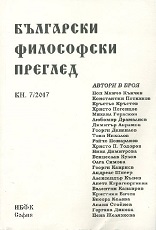
We kindly inform you that, as long as the subject affiliation of our 300.000+ articles is in progress, you might get unsufficient or no results on your third level or second level search. In this case, please broaden your search criteria.

The article investigates the concept of tolerance formulated by the famous English public figure and the publicist of the period of the English revolution S. Gartlib and estimates its importance. Analyzed is the treatise «Makaria» which is one of utopian compositions of early Modern times raising the questions of interpersonal tolerance (images of the main characters), tolerations (the religious system of the fictional state) and tolerance of other people (the principles of foreign policy of the fictional state).
More...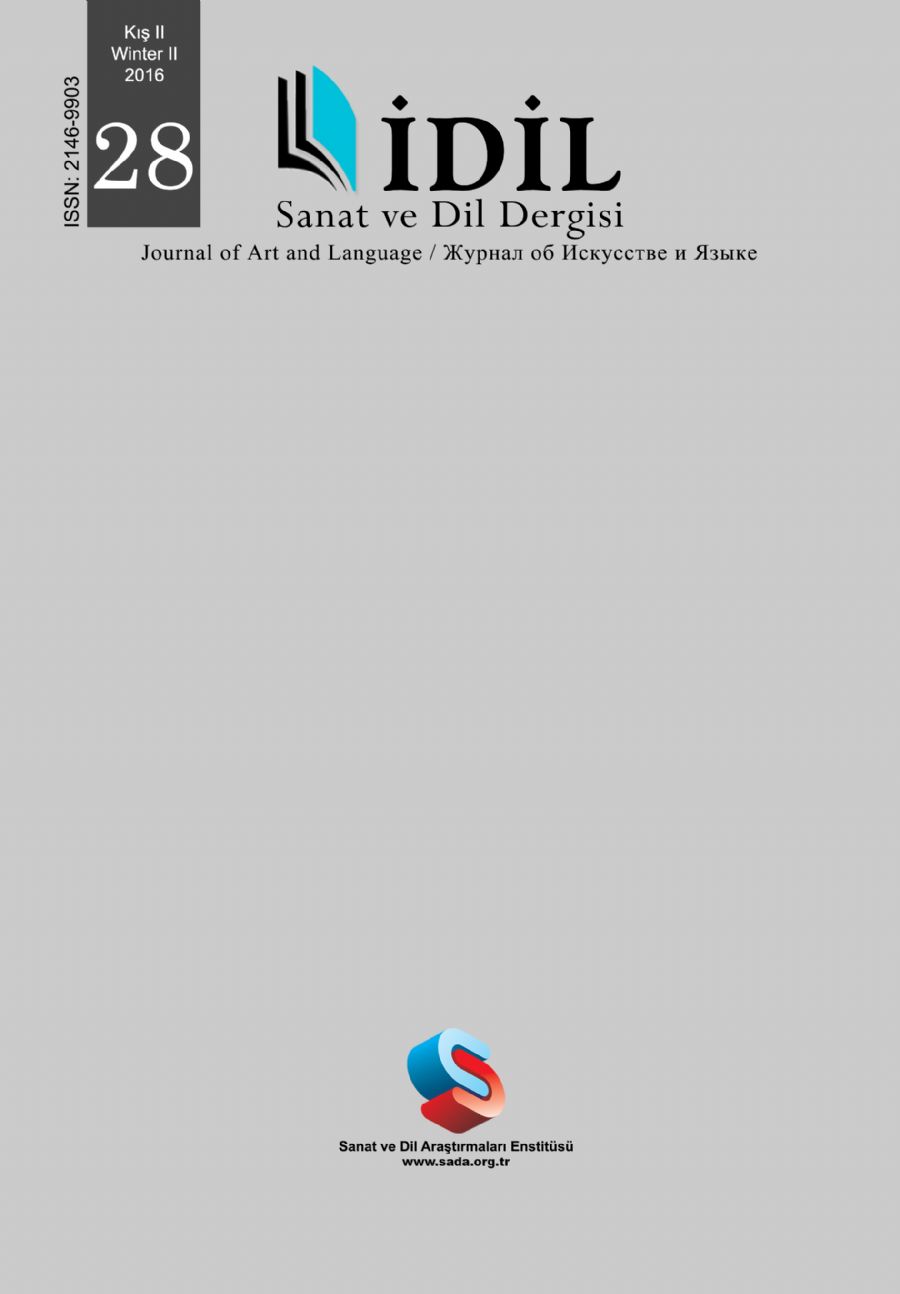
In the study, Arthur Rimbaud's used in "I is another" rhetoric that write prose-poem in 1871, named Letter of the Seer, are studied by examining under the influence of biographical datas and the intellectual structure is analyzed through the concept of "I", which is fall through of the modern philosophy. From the issue of "I" in the Descartes philosophy to Sartre's existential "I" besides romantics and literature, on concepts of "me and the other" in art is making a hermeneutic analysis.
More...
This essay examines critically the impact of Hume’s conception of reason on ethics. In Hume’s empirical ethics, the role traditionally attributed to reason is played by sentiment. Hume’s conception of reason and its ethical implications are presented and possible objections to the limits he imposed on the role of reason in ethics are indicated. This analysis relies on Aristotelian arguments, and suggests that reason seems to play a more significant role in human action than Hume claimed. The paper concludes that showing Hume's restrictions on reason in human action as incorrect remains a genuine possibility.
More...
Review of: Garrett Thomson: Locke, Přeložil Marián Zouhar. Vydavateľstvo PT, Bratislava 2004, 112 s.
More...
On one hand the Enlightement provided an opportunity for many scientific discoveries in a critical and free environment, and on the other hand, it led to the demolition of any mythological or metaphysical component in the social and political arena that resulted in the enslavement of people. On one side of the coin, the scientific developments, and social and political institutions that entitled the people to their freedoms were created by the Englightenment. On the other side of the coin, enlightenment led to another scenario that included a new set of relations by producing and sustaining suppression and domination. The main purpose of this study is to examine this latter scenario that reproduced superiority relations by taking into consideration Horkheimer’s and Adorno’s thoughts on Englightenment. First, the study explains the main arguments of the Enlightenment. Second, the role of the Frankfurt School that shaped Horkheimer’s and Adorno’s perspectives is discussed. In the final section, the criticisms of both philosophers are scrutinized through Odysseus’ adventures.
More...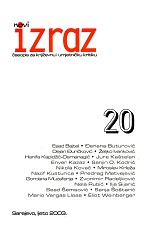
U dvanaestom poglavlju Biographie Literarie Samuel Taylor Coleridge (1772- 1834) će napisati: "Sveukupno znanje proistječe iz podudarnosti objekta i subjekta" 1 (CW 7,1:252) i time dotaći ključnu temu u svojoj teoriji, temu pomirenja suprotnosti (reconciliation of opposites), povezanu s Coleridgeovim nastojanjem da formulira jedinstvenu teoriju života i dokine teorijsku podijeljenost nauke, umjetnosti i kršćanske vjere.
More...
Review of: Antonio R. Damasio, Descartesův omyl, Mladá Fronta, Praha 2000. 259 s.
More...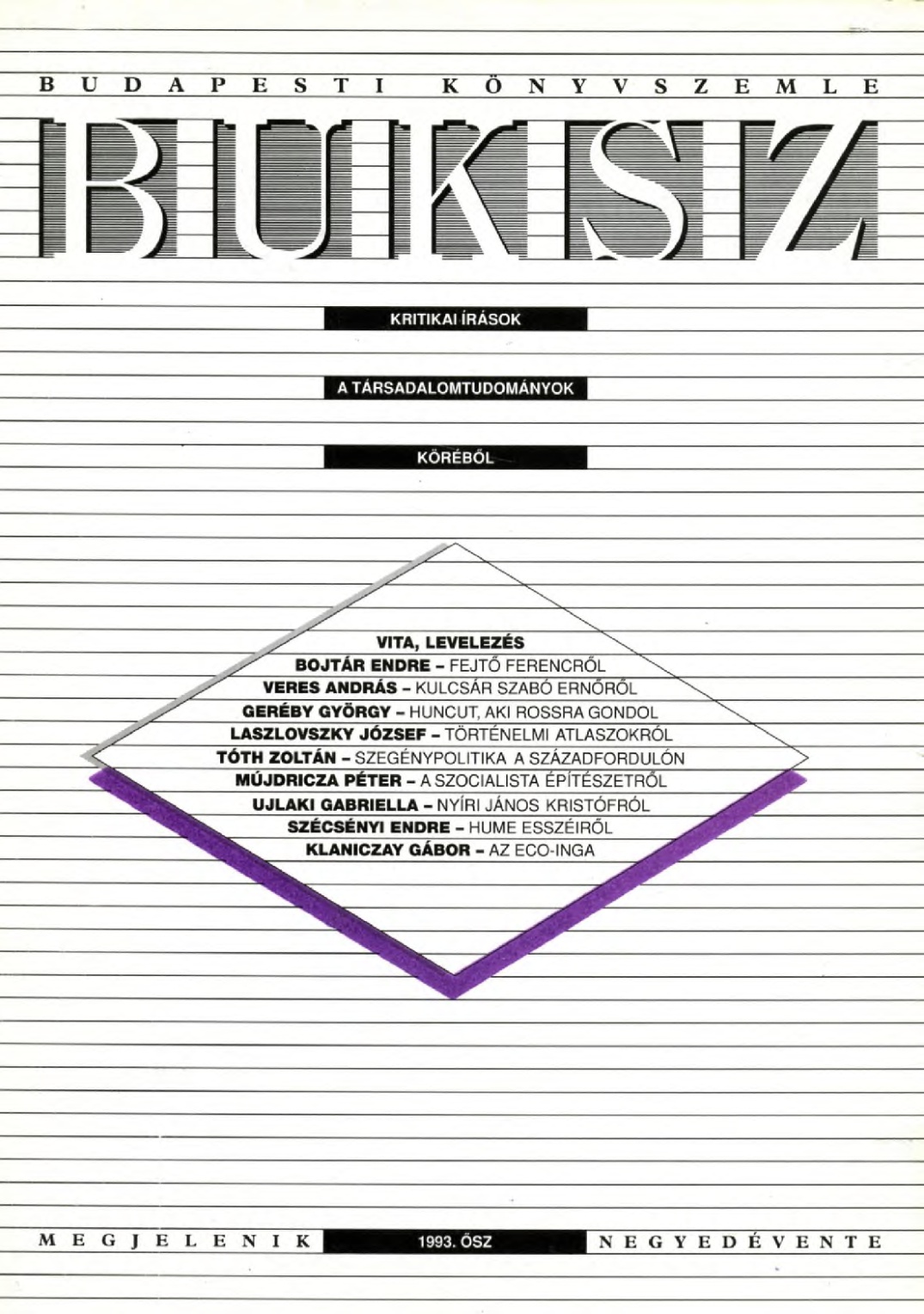
A XVIII. század filozófiai, morálfilozófiái, kritikai-esztétikai gondolkodása az utóbbi évtizedekben egyre inkább a figyelem középpontjába került. A XIX. század, a romantika iránti érdeklődést fokozatosan váltotta fel az addig csak „előzménynek” tekintett másfél évszázad behatóbb vizsgálata és újra- meg újraértelmezése. Az AtlantiszMedvetánc Kiadó a magyar könyvkiadás számos adósságának törlesztése mellett (Simmel-, Buber-, Wittgenstein-kötetek) az „Ész Századához” kapcsolódó alapkönyvek megjelentetését is vállalta. Adorno-Horkheimer radikális felvilágosodás-kritikája nyitotta a sort, majd Edmund Burke reflexiói következtek a francia forradalomról, Ludassy Mária Téveszméink eredete című tanulmánygyűjteménye, valamint A z angolszász liberalizmus klasszikusai két kötete látott már napvilágot. S két és fél évszázad elteltével immár magyarul is olvashatjuk a XVIII. század talán legizgalmasabb filozófusa esszéinek első felét is. Hume életében jószerével csak e művei arattak elismerést, ellentétben nagyobb értekezéseivel, amelyek meglehetős értetlenségbe ütköztek vagy visszhangtalanul maradtak. Pedig Hume a goromba és korlátolt kritikát, a „vakbuzgók zúgolódását” is kitüntetőbbnek tekintette az elhallgatásnál.
More...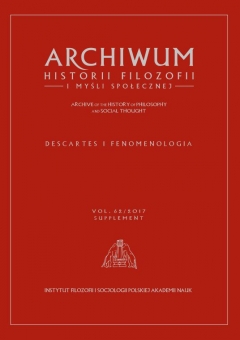
The article is an attempt to analysis the ontological aspects of Descartes’ philosophy in the light of the existential and formal ontology of Roman Ingarden. Descartes resolves the philosophical problem of what is real by introducing the notion of substance. The substance is the keystone of Descartes’ philosophy functioning at different levels of his thought and being an attempt to connect the existence of the real and the ideal. The problem of substance includes existential issues, where the substance is treated as category, and formal-ontological ones, where the substance acts as a categorical quasi-nature, used to distinguish the different fields of reality. Substance as a category is characterized by (a) gradual, ontical self-sufficiency; (b) independence, which is associated with a property of exclusion, (c) ontical durability, and finally is treated as (d) existing thing (res existens). Secondly, the notion of the substance as being the subject of properties (hypokeimenon) leads to distinguish it as a quasi-constitutive nature, which is then considered in each of three types of substances: God, res cogitans and res extensa.
More...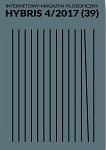
In the stage of illumination, the soul is dying from the longing for the Spouse. It finds the most efficient way of moderating the pain of inevitable temporal separation in contemplative solitude. Since this solitude does not eliminate the distance, the soul craves for death, which promises it a beatifying meeting. It becomes the supreme goal for the soul and is presented by mystics as a fulfilled communication, or unification. The soul tends to it in a desperate trust in God, filled with a desire for self-loss. The soul tries to overcome with love the uncertainty, which shrouds its relation with the hidden God. This love incites in the soul the desire to see here and now, the impossibility of which is overcome by the ecstasy granted by grace. An ineffable inspiration, which allows the soul to communicate with God, is articulated in the mystical communication thanks to the gift of writing (charisma affabilitatis) and successful use of the metaphor.
More...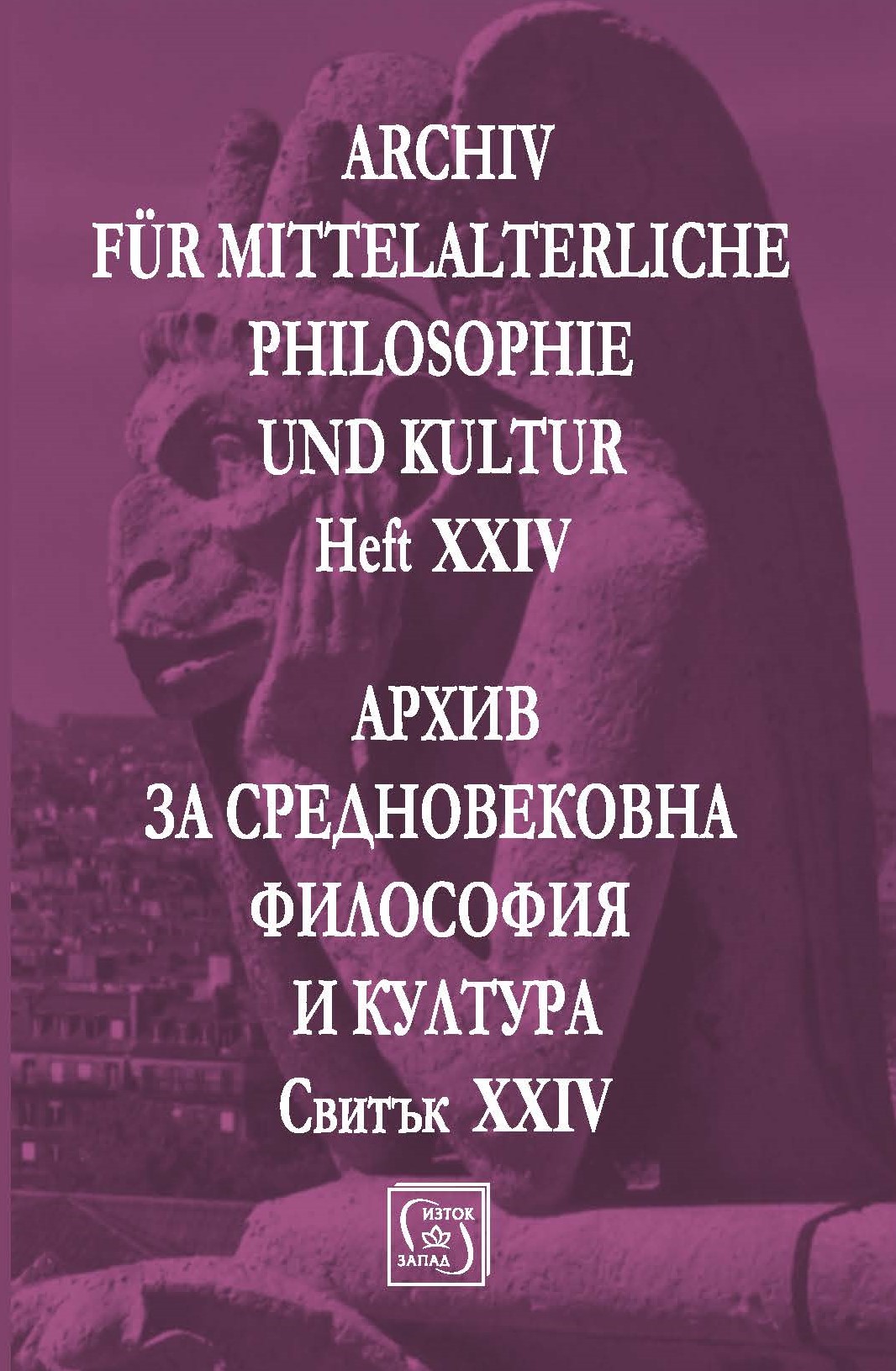
The paper makes a short overview of the first usages of the persona concept in the Western philosophical tradition, starting with Tertullian, the Cappadocian Fathers and Augustine. It is demonstrated that all of these initial usages are lacking the status of clearly defined philosophical concepts. Then is presented the first definition of persona in the Latin thought, which is formulated by Boethius in his famous Treatise Contra Eutychen et Nestorium. The focus of the text falls on the critic of Boethian definition by Richard of St. Victor in his treatise De Trinitate, and on his own definition, given at the same place, which promotes the incommunicability as the essential property of the person. We are especially emphasizing the major importance of the conceptual separation that Richard does between persona and substantia. The latter has a great impact on the development of the personality concept, which is later adopted and unfolded by a number of Western philosophers, including Peter John Olivi, John Duns Scotus and Immanuel Kant.
More...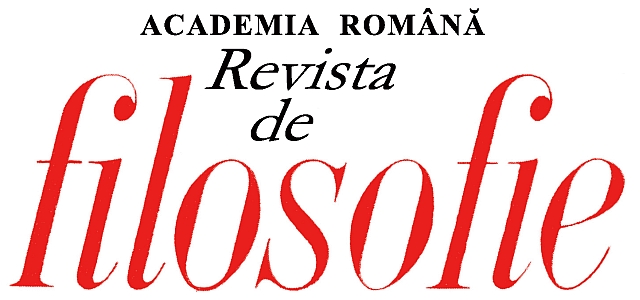
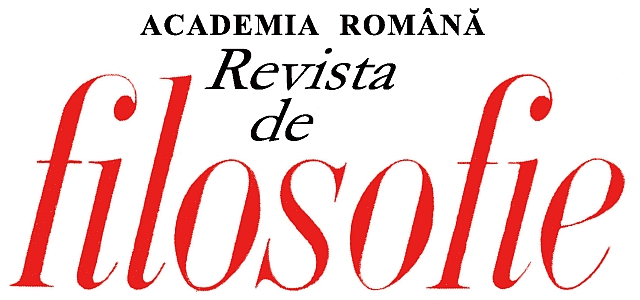
During 1699 and 1700,while studying at the Academy of Constantinople, D. Cantemir transcribed the wholework of J.B. Van Helmont, Phisices universalis doctrina et christianae fidei congrua etnecessaria philosophia. As an introduction to this work he wrote a praise for the authorand his virtues. “The Praise” is written both in Latin and in Romanian, and it is one ofthe first philosophical paper in Romanian. I will show that this text, from the beginningtill the end, is about a truth – unique, unwavering and eternal.
More...
The study presentsinformation on the life and activity of Jan Baptist van Helmont, and the context inwhich the Romanian philosopher and prince Dimitrie Cantemir read and made use ofthe works of the Flemish medical doctor, chemist and alchemist.
More...
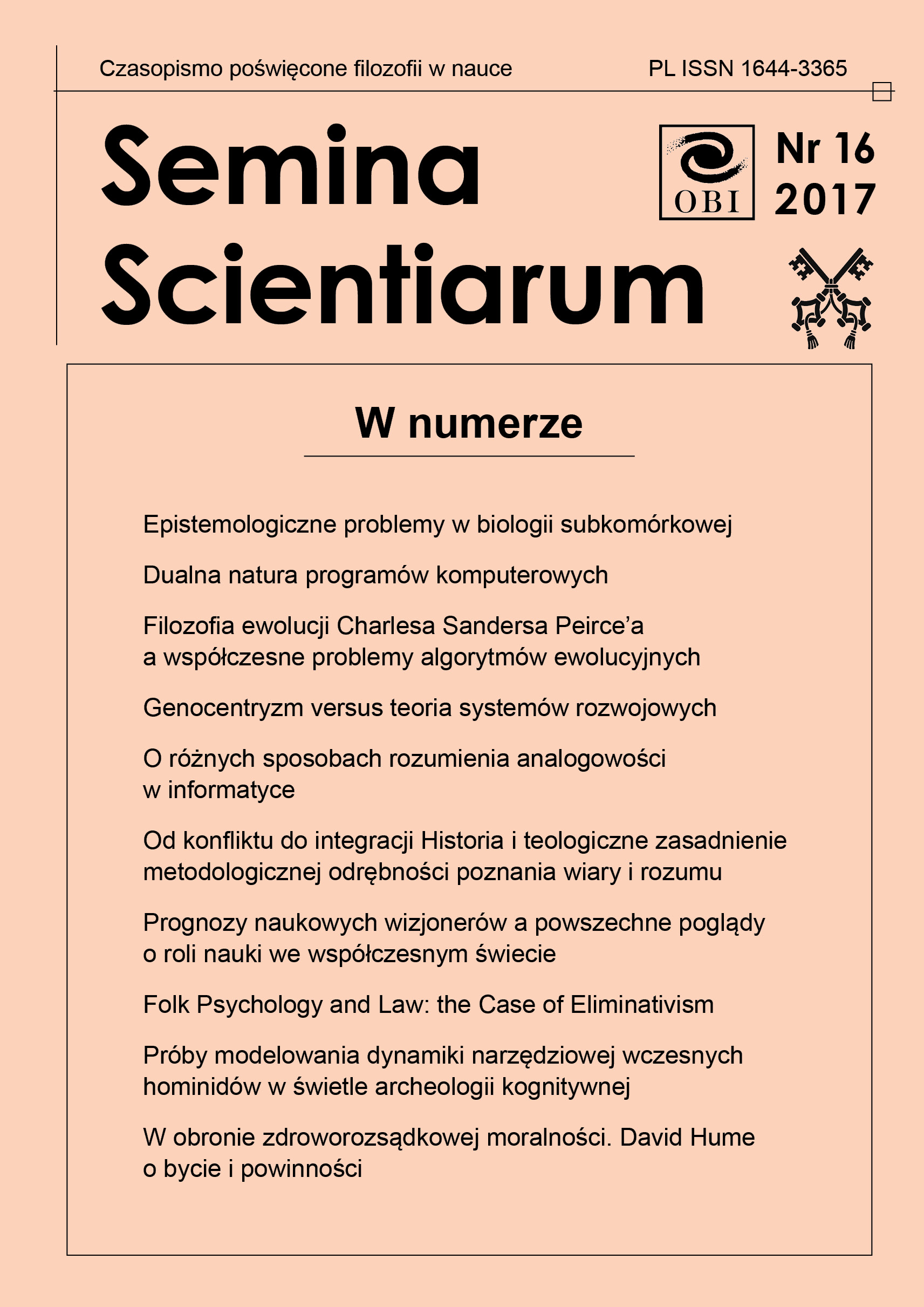
In the article the author rejects traditional, logical interpretation of the famous “Is-Ought Paragraph” from David Hume’s A Treatise of Human Nature. He argues that most of the interpreters failed to grasp the wide philosophical background of the IsOP, which is, generally speaking, a passionate discussion between ethical rationalists and ethical anti-rationalists in the 17th and 18th century British philosophy. The author shows that the Hume’s main aim in the IsOP is to strengthen his previous arguments against ethical rationalism and to reinforce (and not subvert at all) the common-sense (vulgar) systems of morality, likewise he did in the first book of the Treatise… in case of the theory of knowledge. The author argues that there is no putative thesis of logic in the IsOP, which some scholars call “Hume’s Law”.
More...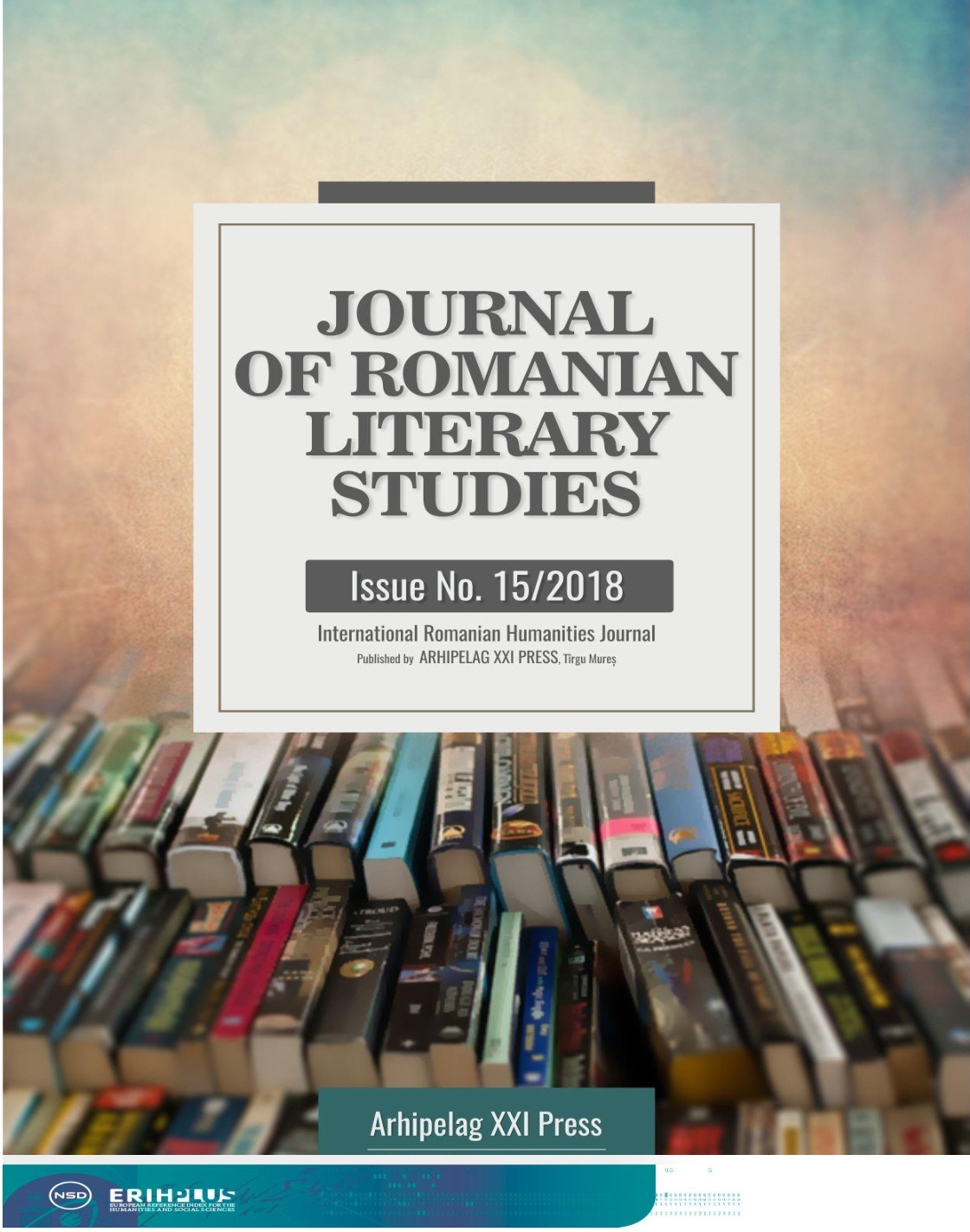
Cantemir was a philosopher of history, which differs greatly from the chroniclers of G. Ureche, M. Costin and I. Neculce, by addressing the historical phenomenon itself. Cantemir has not only replicated the huge factual material gathered by him regarding the history of Turkey, the Caucasus, Moldova and other countries, but has prefigured a way to interpret the general course of the historical process. Hence, the history and philosophy of history was the domain in which the thinker first manifested himself as a remarkable scientist. We will try to surprise how the world / space were commented and how it was told in Dimitrie Cantemir's literary, scientific and philosophical discourse, the building of the ontological discourse.
More...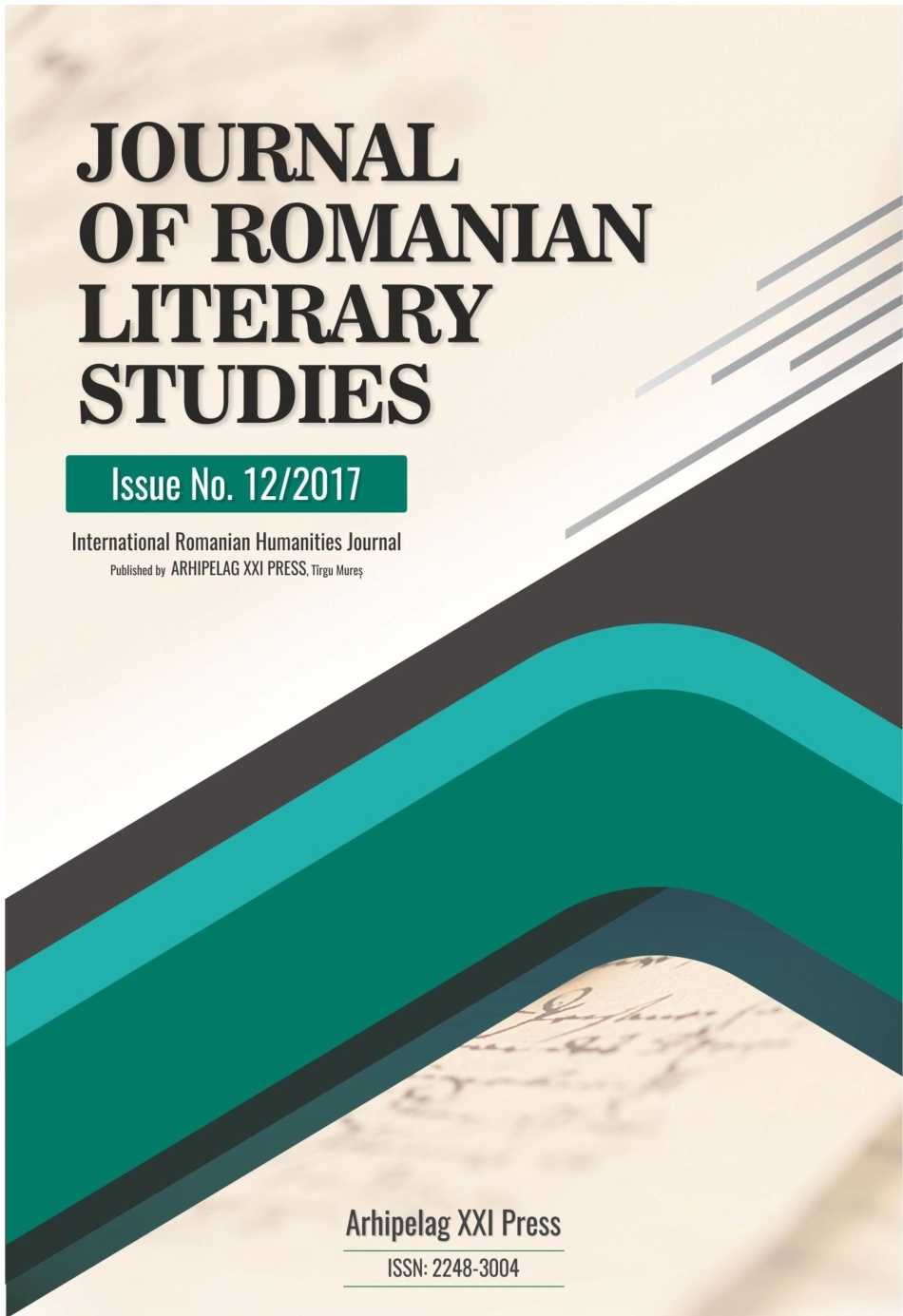
In Critique of Practical Reason, Immanuel Kant shows explicitly that we could not do a worse service of morality than if we wanted to be examples. For every example that is presented to us must be judged by the principles of morality first, to know whether it is worthy to serve for example, the original, that is the model. Thus the theory of the categorical imperative is subordinated to a logical problem. It postulates that there may be sentences in our consciousness that come neither from the observation nor from any reasoning with the starting point in another preface. In order to understand the nature of the categorical imperative, we must relate to the famous theory of synthetic judgments a priori. Our observations on the objects of the common experience, as well as the propositions of science, are only possible thanks to the forms that the spirit receives from nowhere else but from its own constitution.
More...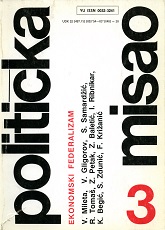
The author analyzes Rousseau’s social contract and demonstrates the inconsistency of his conception. Namely, in one place individuals make a contract mutually and thus constitute a political body; elsewhere individuals make a contract with the public as a group. According to the author, Rousseau in spite of his vaccination concerning the parties involved in the contract, never abandons the basis of his political thought which resides in the constant maintenance of the parties’ identity, through this the individual’s freedom is expressed; by defending it Rousseau becomes a founder of the modern era.
More...